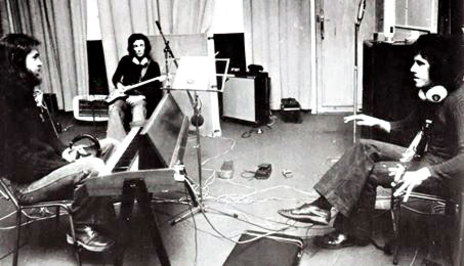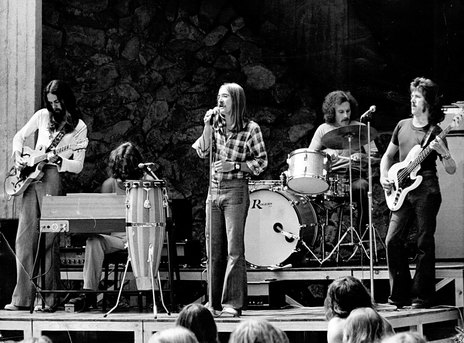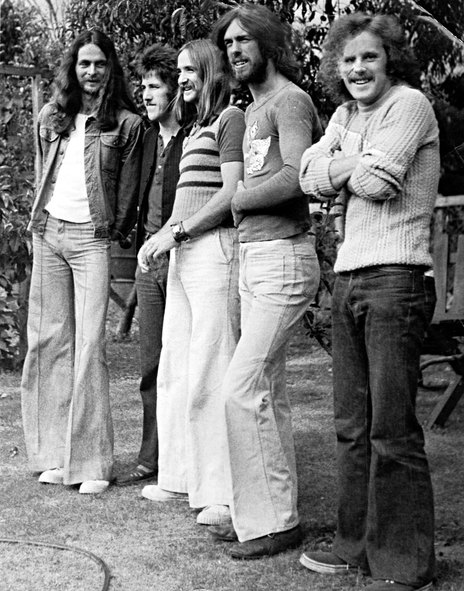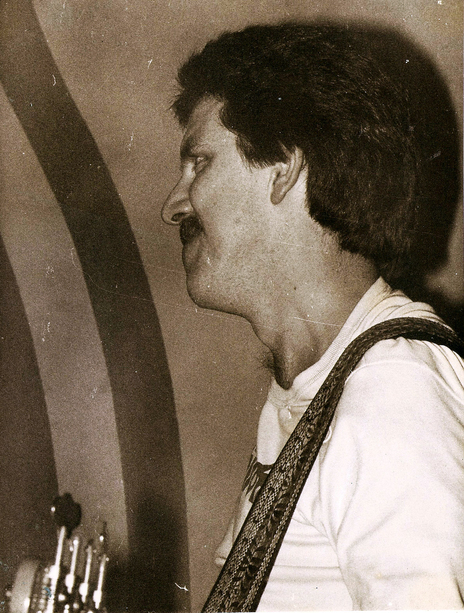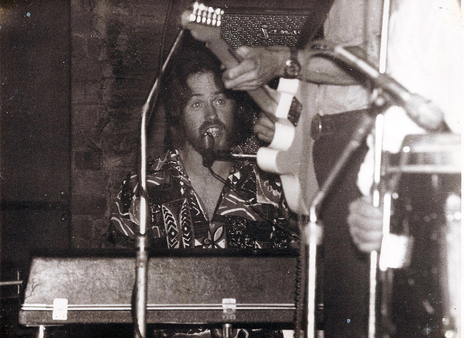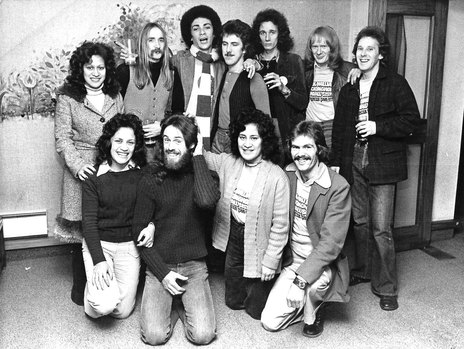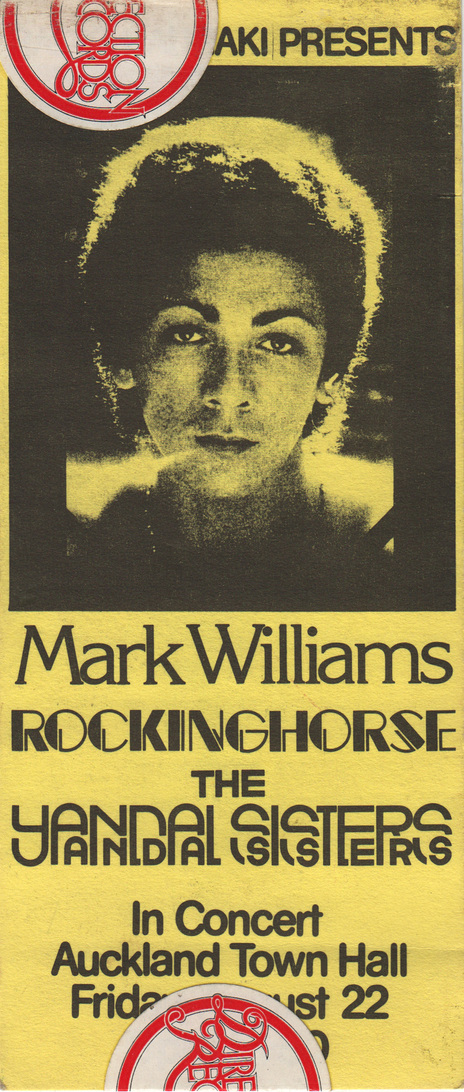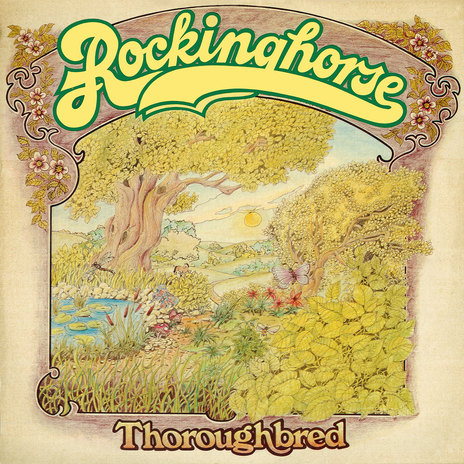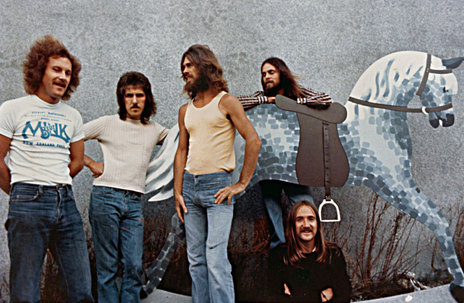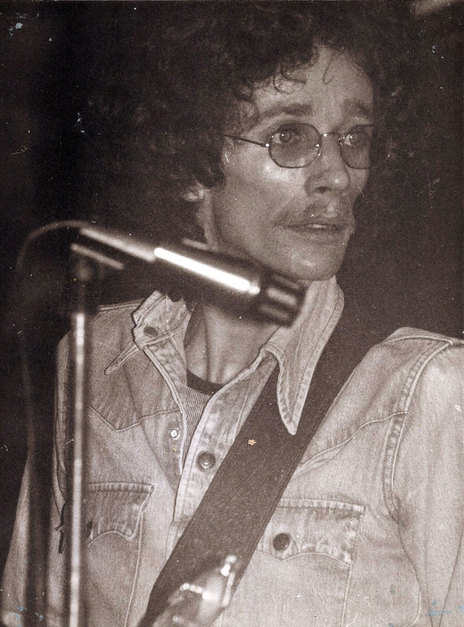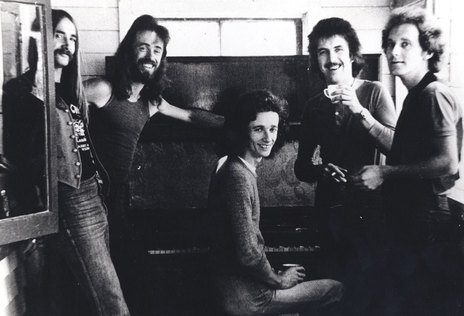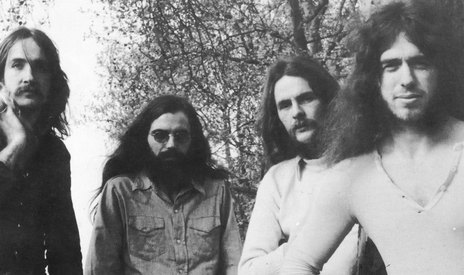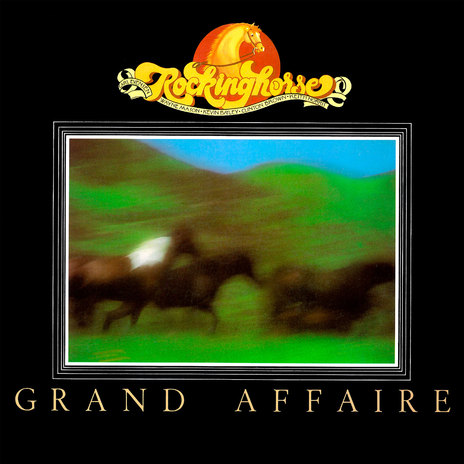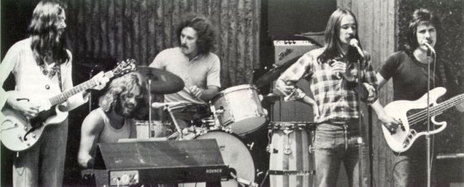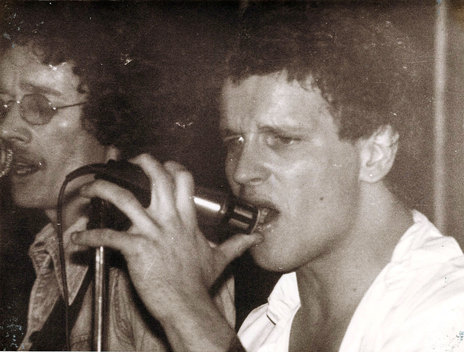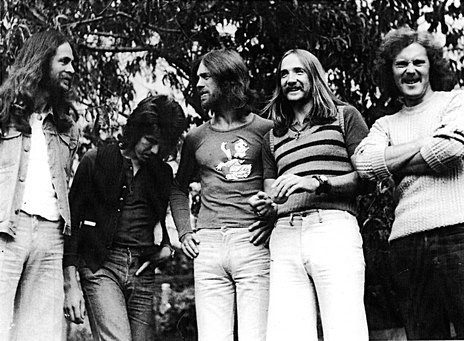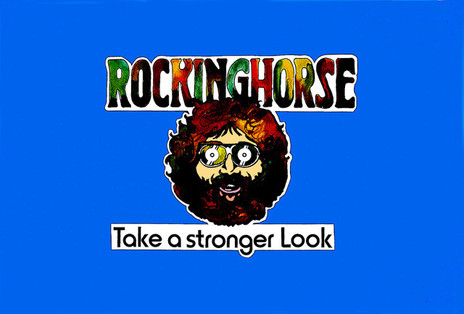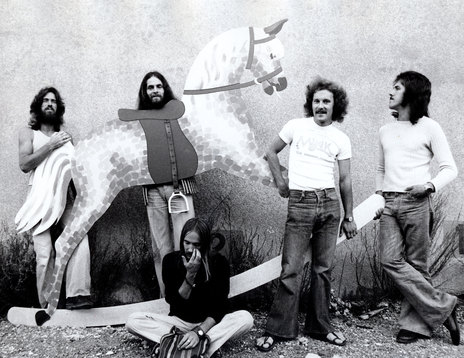My involvement could perhaps be described as serendipitous. In early 1973 I had returned from EMI in London to my role as producer at EMI NZ with two main ambitions: I wanted to build a “family” of artists who could work together on stage and in the studio along the lines of the Stax and Motown session bands – and I wanted to take New Zealand music to the world.
"I wanted to build a “family” of artists who could work together on stage and in the studio along the lines of the Stax and Motown session bands."
– Alan Galbraith
As these ideas were taking shape, in walked Wayne Mason and Carl Evensen (ex-The Fourmyula) who had also recently returned from the UK where they had been trying to get their act together with Richard Burgess (The Quincy Conserve) and Bruce Robinson (AKA Bruce "Phantom" Robinson of The Pleazers) in a band called Flinders. Back in Wellington they were rehearsing with Clinton Brown and Keith Norris (Rebirth and Taylor) and after Bruce’s return from the UK, the original line-up for Rockinghorse took shape.
Meanwhile at EMI, Rick White had joined me to work in local A&R. Together, we took the “family” idea to EMI management who agreed to back the concept. We bought a touring van for the band and had it sign written, Rick sorted out a clothing deal with Lee Jeans, and the band had the assurance of guaranteed studio work in addition to their live gigs, with EMI handling the management.
A strong heritage
Clinton Brown and Keith Norris had been playing together since they were at school. In 1969 they formed Rebirth with Mike Farrell, and later in Australia put together Tangent with Dave Brown and Milton Parker. They returned to NZ in 1971 to join guitarist Kevin Bayley, keyboardist Steve McDonald, and bass player Rick White to form Taylor. After some success and relocation to Auckland, Taylor disbanded and, in 1973, Norris and Brown returned to Wellington.
Bruce Robinson had also enjoyed an interesting career, first as lead guitarist with the Australian Pleazers, then Auckland’s Troubled Mind before working as Shane’s musical director. He was also in demand as a session player, music arranger, and guitarist for a number of top New Zealand acts. After moving to the UK with Shane in the early 70s, Robinson returned to join Mark Williams’ band, Face, until they disbanded towards the end of 1973.
Evensen and Mason were part of one of New Zealand’s most successful outfits, Wellington’s The Fourmyula. The band had several major hits at home before moving to the UK, where they came very close to achieving major international success. Wayne Mason became recognised as one of our top songwriters with his hit, 'Nature', voted “the best New Zealand song” by his music industry peers at the APRA 75th Anniversary celebrations in 2001.
Getting started
The first recording sessions got underway in late 1973. At around the same time, the band went on the road as support act to Blue Mink on their NZ tour. The first single from the early sessions, Wayne Mason’s 'Good Old Rock And Roll' was released in time for the tour, but disappeared after just a week on the charts.
After the Blue Mink tour, the band set out on the Lion Breweries pub circuit and the sessions continued for the band’s first album, Thoroughbred. Along the way, the rest of the EMI family was coming together with Rockinghorse anchoring the early sessions.
Mark Williams was brought to our attention by Bruce Robinson. They had worked together in Face, but now Williams was interested in a solo career. We flew him down to Wellington and spent a few hours together in the studio. Things instantly clicked, so Mark Williams was signed to EMI and we went looking for a female artist to join the family. But instead of finding one, we found three.
The Yandall Sisters were an established harmony trio who had worked with many of New Zealand’s top artists both on stage and in the studio. Not really a “rock” act as such, they were as much at home on the cabaret circuit as they were the big stage. However, in the studio, the combination of Rockinghorse, Mark Williams, and the Yandall Sisters was a match made in heaven.
Down to business
Rockinghorse were all experienced session players who had spent time in studios here and in the UK. With Wayne Mason they also had one of the country’s top songwriters in their line-up. Country rock and folk dominated the band’s style, which in the early 70s was still very much in vogue despite the UK art-rock influence gaining strength, particularly in Auckland.
The band’s first album, Thoroughbred, released in early 1975, was hailed as a success both artistically and commercially.
Thoroughbred, released in early 1975, was hailed as a success both artistically and commercially. Wayne Mason and Carl Evensen shared writing credits with other members of the band who wrote together as R. Horse. Although a second single, 'Take A Stronger Look', also failed to fire, the album sessions soon yielded the first Rockinghorse hit single. 'Thru the Southern Moonlight' was an instant radio hit and stayed in the NZ Top 10 for several weeks. Still regarded as a New Zealand classic to this day, the single also won RATA awards (NZ Industry Music Awards) for Best Group and Best Single.
A US deal – or no deal
There are several different versions of what happened to a supposed US deal for the band’s Thoroughbred album, including the story of the band refusing to sign new contracts with EMI that would have allowed the company to sub-license to an overseas label, and the one about EMI demanding unrealistic royalty rates.
All I recall was hearing that a Nashville-based company was interested in the band’s publishing. There was also talk of a possible album release. However, EMI were not prepared to simply hand over publishing rights as they had made a considerable investment in the band and their initial contracts had all but expired. With no co-publishing offered to EMI the deal went cold.
It was around this time that things started to get messy on a few other levels. Founding guitarist, Bruce Robinson, grew a little tired of playing the pub scene and quit the band in February 1975. He was replaced by Christchurch guitarist, Kevin Bayley. Then there was the infamous Lion Breweries incident.
In the heat of the moment they forgot they were due on stage at the Lion Tavern in Wellington at 8pm that night.
After winning the NZ Recording Industry Association’s “Best Group” and “Best Single” awards, the band stayed on to celebrate well after most people had left the ceremony. In the heat of the moment they forgot they were due on stage at the Lion Tavern in Wellington at 8pm that night. Turning up late and a little worse for wear, they got into an argument with the Lion Tavern management and, after telling them where to stick their pub, were promptly fired and banned from the Lion Breweries circuit. As Lion Breweries pretty much controlled the live scene, it was an event that seriously affected the band’s future.
Back to work
There were a few gigs still to be found outside the Lion Breweries circuit and the band had studio work, including Mark Williams’ first two albums and early hit singles. They also laid down tracks for The Yandall Sisters album, Up Front, and started work on their own second album, Grand Affaire.
As before, the songs mainly came from Carl and Wayne, with several R. Horse compositions and two from new guitarist, Kevin Bayley ('Turn On The Light' and 'Oh! Marimba Go!'). Two tracks also featured Bayley on lead vocal. His distinctive guitar style brought a slight change of direction to the band’s sound, still country-ish but now rockier.
Grand Affaire, released in 1976, was a more polished album with a rockier feel and some pretty solid playing, but probably not as "commercial" as the first album. The band was a powerful unit live and in the studio, but not necessarily hungry for commercial success, an attitude that often frustrated me and the folks at EMI who were paying the bills!
The songs were good, the band was playing well, and they were touring with Mark Williams and Sharon O’Neill, who had recently joined the “family” with her husband/guitarist, Brent Thomas. Things were looking up but, somehow, Rockinghorse weren’t able to capitalise in quite the way they should have. Without a hit single the album didn’t get the exposure it deserved.
At the same time, with Rockinghorse back on the road more, I was starting to bring in other musicians for my sessions at EMI’s new studio in Lower Hutt, including the members of Wellington funk band, Redeye, piano players Mike Harvey and Julian Lee, and keyboardist/arranger, David Fraser.
Then in mid-1976, I was invited to join CBS records in Australia. Mark Williams decided to join me, Sharon had left for greener pastures at PolyGram records, the Yandalls were busy with John Rowles, and so the EMI family came to an end.
The last hurrah
Rockinghorse probably reached their creative peak in early 1976. Later that year, singer Carl Evensen called it a day, closely followed by drummer Keith Norris. Ex-Country Flyers and Highway drummer Jim Lawrie replaced Norris and Barry Saunders took Evensen's place as the band’s new front man.
Lawrie was to give the band more drive and Saunders was more than up to the task as front man and as a songwriter. The new writing partnership of Saunders and Mason would be cemented in Rockinghorse and go on to provide the essence of The Warratahs a little later.
They also had a new manager in Barry Coburn, who patched up the differences with Lion Breweries, put the band back on the road and released a new single, 'You Can Love', on his White Cloud label, but once again the single sank without trace. Despite the band’s musical and songwriting prowess, commercial success continued to evade them.
The fallout continued in 1978 when Jimmy Lawrie left and was replaced briefly by Steve Garden and the band spent their final days as resident band at Wellington’s Last Resort, a venue co-owned by Clinton Brown and new manager, Danny Ryan. Wayne Mason and Barry Saunders went off with John Donoghue to form The Warratahs, later joined by Clinton, while Kevin put together his own band, Short Story.
Epilogue
This is the story of a band that could have and should have, but never quite did. Did they really want to be a commercial success, a "pop" group? Probably not. Regardless of how it all turned out, I still consider Rockinghorse to be one of the great New Zealand bands and, to this day, I listen to those albums and am very proud to have been a part of it.
